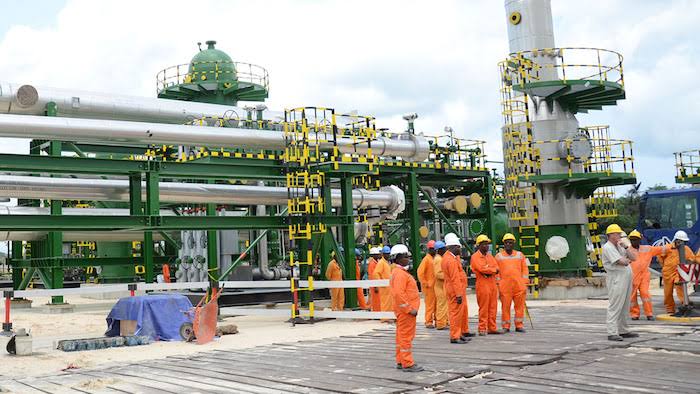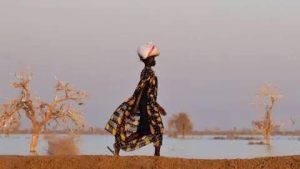
Oil and Security Challenges in Nigeria – Progress or Trend Maintenance?
Historically, Nigeria has ranked highly in terms of terrorism and oil production, respectively. Nigeria holds a vast amount of wealth in its energy sector, possessing the tenth-largest oil reserves and serving as the sixth-largest exporter of oil (and the largest in Africa) globally (Abu-Bashel, 2024). Simultaneously, Nigeria ranks eighth on the Global Terrorism Index of 2024 (GCERF, 2024). There have been proven links between national security issues and natural resources, stemming from financial motivations on both state and non-state sides alike.
Oil in Nigeria
After the discovery of oil in Nigeria in the 1950s, the state soon gained revenue in the 1970s oil boom, yet the quality of life for its citizens did not noticeably improve (Okpebenyo et al., 2023). Many have theorised that Nigeria fell into the Resource Curse and Dutch Disease traps upon finding oil, which has significantly hampered the nation’s developmental trajectory. The Resource Curse refers to when a state is rich in resources, but poor. This is brought on by rent-seeking behaviours and corruption among government officials and their affiliates (ibid). Financial benefits as large as those promised by oil create incentives for mismanagement and personal enrichment, thus blocking citizens from receiving benefits from oil profits. The Resource Curse is seen in the Niger Delta, which has remained poor despite serving as the centre for Nigeria’s oil production (ibid). Simultaneously, Nigeria has suffered from Dutch Disease, as the state has placed an almost exclusive focus on its oil industry, at the expense of its other industries (ibid). After the 1970s oil boom, “agriculture and manufacturing fell from 44.2 and 12.4 to 24.7 and 4.8 percent of GDP, respectively” (Amundsen 2017).
Though profitable, a heavy reliance on oil revenue has made Nigeria highly vulnerable to oil price volatility. In 2020, the COVID-19 pandemic caused a sharp drop in oil prices. Nigeria reduced its prices from 57 USD to 30 USD per barrel and suffered a significant loss in government revenue, leading to large cuts in its capital budget (Akintunde, 2020).
Current Trends in Oil
Though oil only amounts to about 14% of Nigeria’s current GDP (Ministry of Foreign Affairs), it serves as the “primary revenue source for the government,” totalling 75% of total government revenue (Oladipo et al., 2024). Thus, all government services (infrastructure, health, education, etc.) are heavily reliant on oil profits and heavily vulnerable to oil price shocks. Nigeria is also vulnerable on its export front; the country exports most of its oil to the United States (40%), India (11%), and Brazil (10%) (Olujobi et al., 2022). If oil demand drops in any of these countries (i.e., due to the energy transition), then Nigeria also faces huge losses (CSIS, 2024).
Former President Buhari and current President Tinubu have both acknowledged the need for economic diversification. Efforts in such initiatives have included a focus on telecommunications, financial services, and cement sectors, as well as a drive for industrialisation (Ministry of Foreign Affairs). Currently, Nigeria has been receiving significant foreign direct investment (FDI), 70% of which is for non-oil industries, indicating a shift towards other productive sectors (ibid). Furthermore, President Buhari has announced his “Renewed Hope Agenda,” which aims for sustainable economic development in Nigeria (Anyanwu, 2024). This agenda includes a larger push for economic diversification (a focus on agriculture, manufacturing, and digital economy) and policies and programmes to create space for small and medium-sized firms to coexist with large corporations (ibid).
Oil and Security
Oil in Nigeria is not merely connected to economic vulnerability; it is also linked to violence and security issues. As previously mentioned, corruption and mismanagement are endemic in oil-rich areas such as the Niger Delta. This has led to the creation of non-state armed actors, such as the Movement for the Emancipation of the Niger Delta (MEND), which has protested poor living conditions in the Niger Delta and the environmental degradation caused by drilling and oil production processes (Strauss Center). Simultaneously, oil companies in Nigeria face thefts (from those seeking profits) and vandalism (from those opposed to oil production) (Olujobi et al., 2022). These security concerns have forced many companies to shut down production. In fact, between 2019 and 2020, Nigeria reported “over a thousand incidents of pipeline vandalisation, kidnapping, ransom payments, and other practices of insecurity” (ibid). This trend has not decreased in recent years, as the state has estimated losses of around $3 billion USD in 2023 from “oil theft and pipeline attacks” (Abu-Bashel, 2024). Thus, Nigeria’s oil industry is sensitive to internal factors (thefts and vandalism) and external factors (oil price volatility), and the state’s overreliance on its profits leave Nigeria vulnerable.
Security Threats
Aside from oil-related security threats, Nigeria has also faced significant challenges related to violence from insurgency groups, criminal groups, farmer-herder conflicts, and its own state forces. Notable current threats to the Nigerian state are Boko Haram and the Islamic State in West Africa (ISWA), both of which operate in northern Nigeria (GCERF, 2024). Though successes have been made in reducing the presence of these groups, the insurgencies still hold a large presence in Nigeria.
The new President of Nigeria, President Tinubu, announced his desire to “eliminate all the threats of Boko Haram, banditry, kidnapping for ransom, and the scourge of all forms of violent extremism” (Modern Ghana, 2024) during his regime. There have been some successes on this front: in the last year, over “300 Boko Haram and bandit commanders have been neutralised” (ibid) in DDR (Disarmament, Demobilisation, and Reintegration) processes. However, violence has increased in the past year despite increased military presence in Nigerian states. At the start of 2024, 580 civilians were kidnapped, mainly women and girls. Since then, there have been significant deaths in farmer-herder conflicts, and many civilians were killed in an attack by female suicide bombers (believed to be Boko Haram, though the group has not taken credit for the attack) (Global Centre for the Responsibility to Protect, 2024).
Simultaneously, state military and police forces have been criticised for excessive force and large civilian casualties in their fight against non-state armed actors (Amnesty International, 2023). These have also been linked to electoral violence and suppression of freedom of speech during Nigeria’s recent elections (ibid).
Currently, the Nigerian military is present in 30 out of the nation’s 36 states to deal with security threats, following President Tinubu’s goal of a safer Nigeria. However, this has overstretched military forces and is not believed to be a sustainable solution to the country’s security problems (GCERF, 2024).
Conclusions
President Tinubu’s renewed focus on economic diversification, improved governance, and violence reduction appears promising. It seems that Nigeria has been slowly diversifying its GDP over the years; however, its government revenue sources must follow suit, as national expenditures still rely heavily on oil profits. Security challenges and violence remain prevalent, yet the large-scale incorporation of DDR processes with non-state armed actors indicates a promising future. Other conflicts (i.e., farmer-herder violence) may require that the government address their root causes (through policy or programmes) or increase its military presence, as state forces are already overstretched through their geographical presence within the majority of Nigeria’s states.
Annette Sorensen is a Fellow at the Sixteenth Council.



